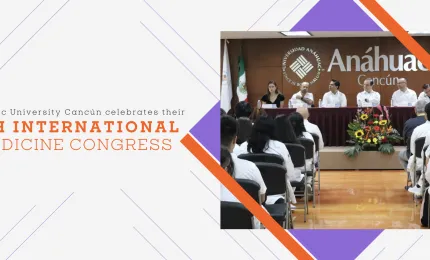Working on your communication skills helps you express yourself and improve your personal relationships. Listening well and speaking clearly is key to your academic and personal life, as well as in future job interviews and business meetings. Are you interested in strengthening them? These 8 simple tips will help you achieve this.
Effective communication and its importance
The goal of strengthening your communication skills is to achieve effective communication. In short, it means being able to actively listen and express yourself clearly to those around you; however, to achieve this, you must master several skills that allow you to understand the signals of verbal and non-verbal communication, as well as listening.
The importance of effective communication is vital because it allows you to clearly translate your intentions and feelings into easily understandable messages. Effective communication makes you a more productive person and reduces misunderstandings caused by lack of communication. In addition, developing effective communication processes helps you understand the needs of others, a skill that will be very useful in your future career.
8 tips to strengthen your communication skills
If you've come to feel that you need to develop your basic communication skills, there are several ways to improve them. Below we share 8 tips to develop your communication skills:
Communicate more
In 1990, a study was conducted at Stanford University which showed that listeners' understanding is overestimated. This study showed that it is important to communicate clearly and excessively when sharing new ideas, as the audience is likely to absorb less than expected.
Avoid relying on visual aids
Well-known companies such as Apple and Facebook have banned the use of Power Point in presentations, as they believe that it can hinder communication rather than promote it.
The recommendation is that when giving a presentation you should always be prepared to use words, make compelling narratives, and use non-verbal cues to communicate your point to your listeners. Avoid visual aids unless it is absolutely necessary.
Practice active listening
Being an effective communicator is also important for being a good listener. A good way to show that you are really connected with what you are being told is by giving affirmative responses and asking follow-up questions.
Focus on non-verbal communication
Paying attention to nonverbal cues can help prevent miscommunication and spark interest in those around you. Be mindful of your facial expressions and body language when speaking. Nonverbal cues affect the impression people have of you. Maintain eye contact, limit hand gestures, and keep good posture, especially when meeting someone for the first time.
Manage your emotions
To achieve good communication, it is important to manage emotions and express them according to the context. Control strong emotions in the academic and professional environment to avoid poor communication and even conflicts.
Request feedback
As with many skills, receiving feedback from peers and mentors is critical to becoming a better communicator. Asking for feedback regularly will help you uncover areas of opportunity. Cultivating the habit of listening to other people's points of view will help you improve in your relationships and as a communicator.
Practice public speaking
Public speaking can seem daunting, but the best way to overcome your fear and develop your skills is practice. Great communicators can articulate their feelings, whether speaking to a large group or face-to-face with another person. Speaking regularly in front of a group magnifies your strengths and weaknesses, encouraging the development of good communication habits.
Adapt to your context
Part of achieving effective communication is related to the ability to modulate the way you express your thoughts and feelings according to the interpersonal context. Develop a filter that allows you to recognize what, how, and when to communicate to ensure that your message is received appropriately in different environments.
As part of the competency-based approach of our 2025 Model, we seek to ensure that Anáhuac University graduates develop, alongside their studies, professional competencies such as communication skills. This way, they can express themselves effectively, freely, and responsibly through the correct use of their native and foreign languages, as well as digital media.




